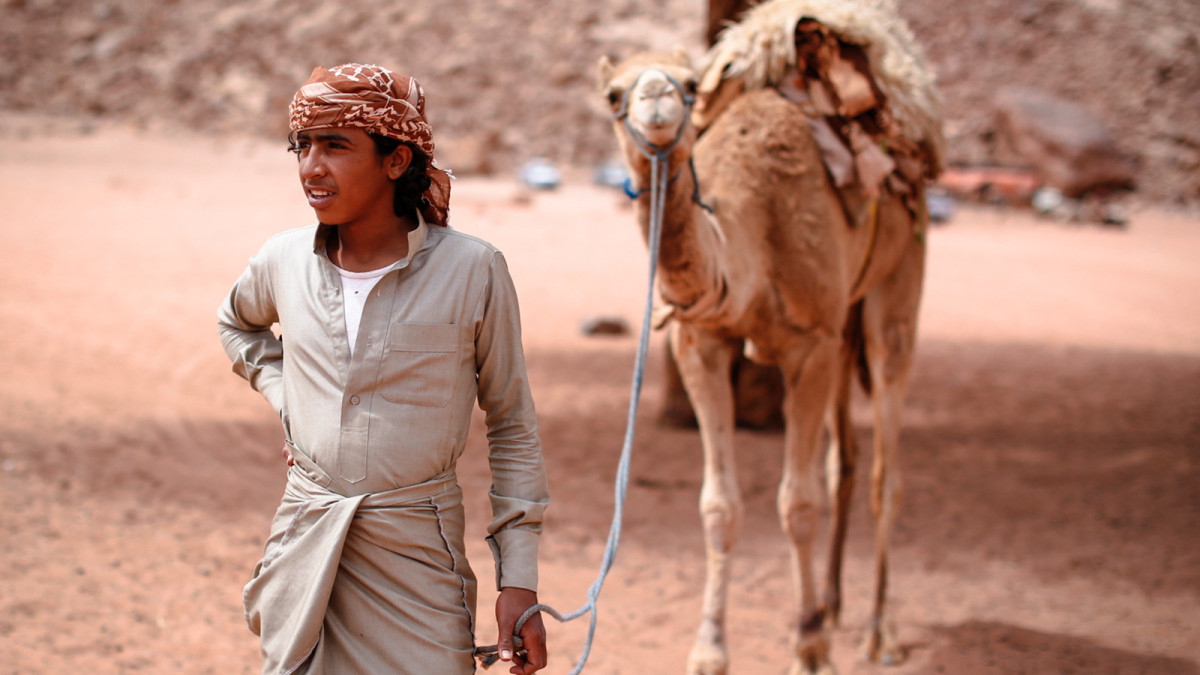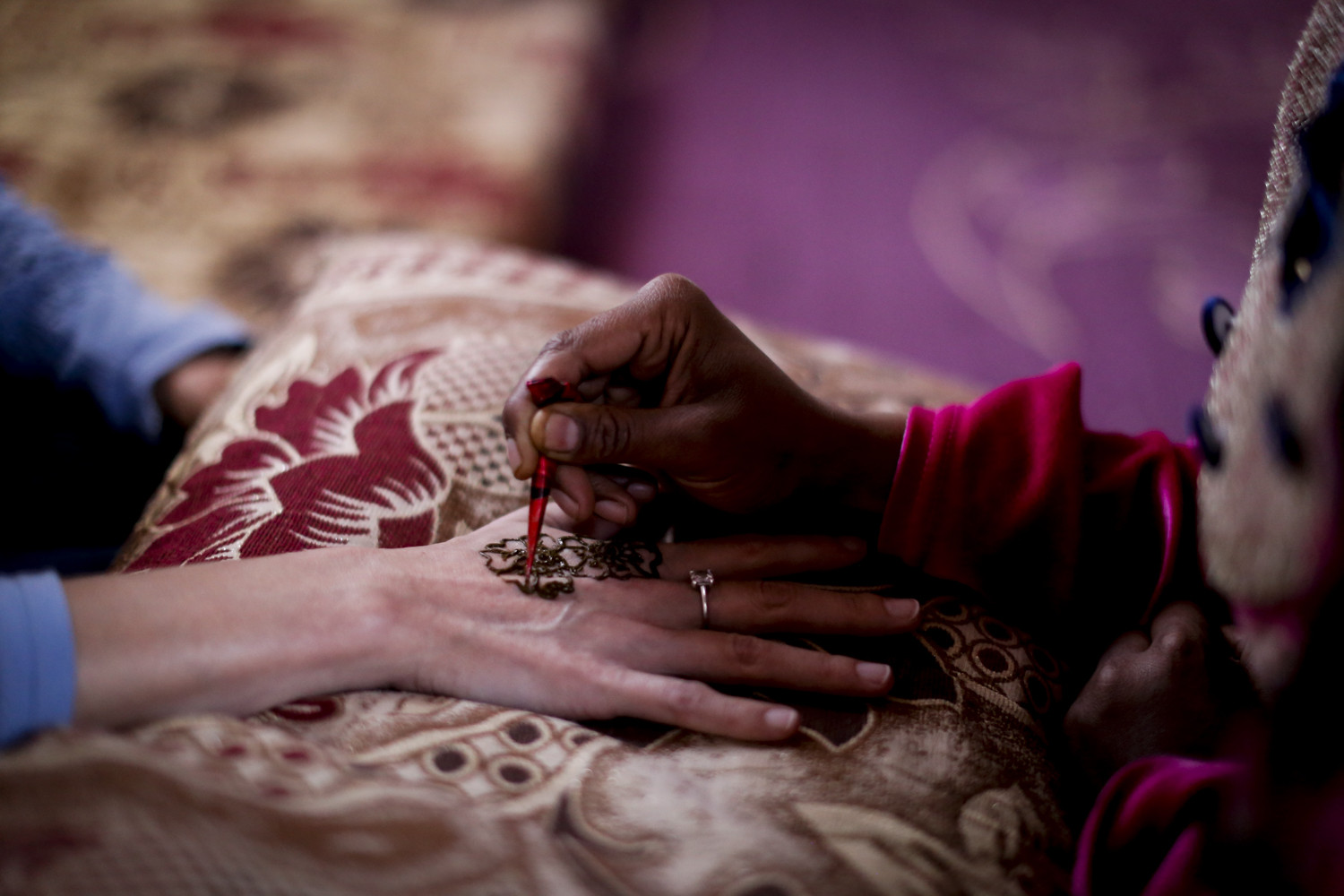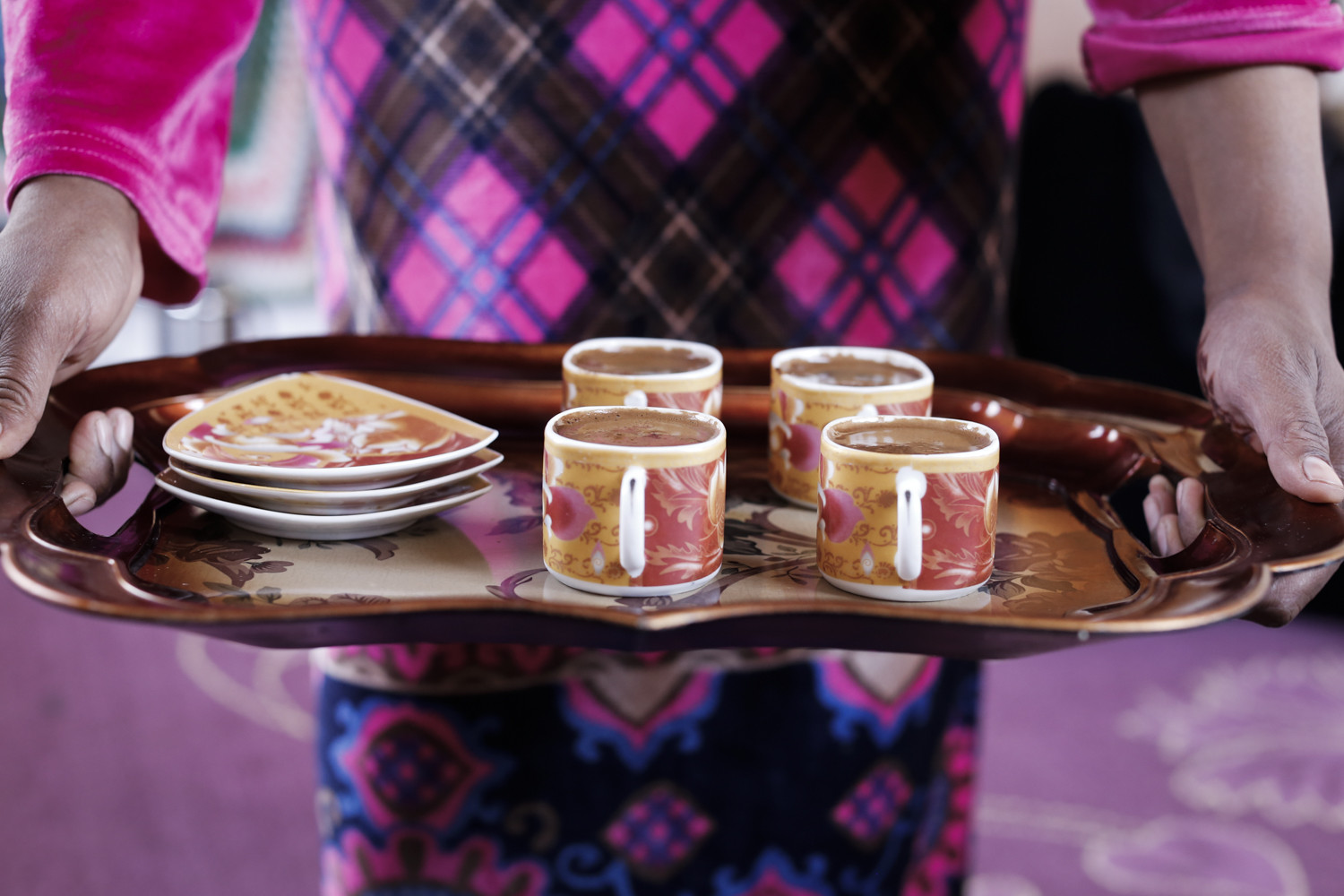Debunking Ministry Myths in the Middle East
Learning from missionaries who serve the Muslim world

A few months back, I went from the humid tropical air of Costa Rica and crossed over a few oceans and stepped into the cool, dry, desert night of the Middle East.* I was full of trepidation for this trip, my first to the region; so many mixed stories I had heard over the years left me feeling unsure of what to expect. Was I going to be in danger every moment of every day? Exactly how secretive and discreet did I need to be? Was every interaction going to be like the books I had read about Christians there?
When I came back home, the experiences stayed with me, and I kept trying to find the right words to express my time in this other world. The brief acquaintance with this region remained with me like a distinct flavor, a sweet yet indistinct aroma. After only a week, I felt like a different person returning to my home; a new perception and empathy stuck closely to me. Yet, I wondered, who am I to write out opinions and explanations of the Middle East? The people, like people everywhere, are beautiful and proud and complex. Middle Eastern culture, language, food and history harbor a profound richness and complexity, making simple or trite answers and solutions absolutely impossible. I have ruminated over this post for nearly three months, writing and deleting, struggling to put my thoughts down on paper. People have spent entire lifetimes among the Arabs and still have not plumbed the depths of who they are as a people—who do I think I am to speak after one week spent in their deserts?
This area is famous for its resistance to the gospel and missions—and yet—God is doing unprecedented things.
Well, I am a storyteller. I went to listen, to learn, to see and hear. I went to be educated. I went with preconceived notions, with fears ingrained in me since earliest childhood. I took along with me the years of American media stories, the photos embedded in my mind and heart of countless wars fought on this soil. I traveled with the knowledge of many books written about God’s heart for Israel and also for the Muslim world, books full of testimonies of people coming to know Jesus through dreams and visions. I went to capture the story of fellow ReachGlobal missionaries and partners, to hear their hearts, to see those they love, to understand and add context to their experiences.
I write wholly from my own experiences. I write as an individual, a photographer and journalist. I write of the things that I myself have learned—not as an expert or one who knows even more than the mere scratching of the surface. I do not write of all experiences ever had by all of humankind, nor of all knowledge known in the Church or by cultural experts—just as a young woman who went and saw and listened.
It has taken me a few months to process my time, and it will probably take years to apply it all. As a place to start, I’ll share my preconceived notions before the trip and how they were shifted and corrected as I learned.
1: “Ministry can be done in a short amount of time.”
There is huge value in short-term trips when they are done well and with the right heart attitude. However, in a culture that is incredibly closely knit, family oriented and very complex by nature, you must have a long-term vision for ministry. It’s the difference between growing vegetable crops and planting a vineyard, illustrated in the Bible many times over. One takes a lot longer than the other to yield fruit!
Relationships are built slowly and cautiously, and it could be years before there is enough trust to truly hear the good news. It is good and essential to acknowledge that it is illegal to convert to Christianity in countries where the government is Islamic—you are assigned a religion at birth. Whatever faith your father is, you also become. If you are a Muslim, you cannot become a Christian, and there is indeed great danger for those who convert. “Great danger” is not even a sufficient phrase, really. The cost is immeasurably more than we can understand.
“Relationships can go deeper when foreigners are involved, because we are outsiders to their social structure.”
However, that being said, there is a huge openness to discussion of spiritual matters, perhaps an openness unseen and even unknown in the West! There may be some areas of the world where people receive the gospel easily and quickly. But the more I travel and hear stories, the less I am inclined to believe it to be true. Even once the gospel is heard and received, the true, long work of making of disciples has only begun.
This area is famous for its resistance to the gospel and missions—and yet—God is doing unprecedented things. Islamic women have come to Bible studies that are meant to talk about abuses suffered in their homes and are introduced to Christ. A doctor comes to the small villages to make relationships and check blood pressure and is able to go into Muslim homes and share the gospel. When trust is established, people ask about God and about the hope of the Christians; they want this freedom for their souls as well.
2: “Outsiders are not needed.”
One of ReachGlobal’s missionaries in this region, a truly remarkable woman, changed this notion of mine in an instant. “Relationships can go deeper when foreigners are involved, because we are outsiders to their social structure, and the people become more willing to share deeply,” she said.
Consider all you know about collectivist cultures: Most Hispanic, Mediterranean and Asian countries have collectivist ideals, where the good of the group and the family are placed above the needs of the individual. For us westerners, this worldview often makes us feel like people are in each other’s business all the time, that there are no secrets, no private thoughts or moments. There are great strengths to collectivist culture: There is a beautiful support system in place for one’s entire life. The family unit is generally where most fellowship is found, and friends are rarely sought outside of one’s cousins and neighbors, who are often also family members.
The challenge in collectivist culture comes when a member of the family questions Islam or wants to confide in someone about doubts, longings, abuses or hurts. An outsider, a foreigner, is unfamiliar and unassociated with the complexity and intricacies of the family unit. As outsiders, we can actually use this as an asset, as it will build trust and give the family member the needed courage to share on a deeper level.

I’d read several books about God bringing people into the knowledge of the gospel in the Muslim world, and so many were full of testimonies of Jesus coming to a Muslim through a dream or vision. I began to wonder if we were really needed in the Middle East, if this was a primary way that Jesus revealed Himself there.
This misconception was lovingly corrected by another friend I visited within the region. He told me that in every case he has ever heard of—and many are direct, first-person testimonies—the dream or vision was only a part of the person’s coming to know Jesus. It was only the beginning of the story or a fraction of the testimony. Just like Peter in Acts 10 (the story that I affectionately call “Peter and the bacon”), there is almost always someone else God sends along to explain and interpret the words heard. Even the Apostle Paul had to have someone come and explain to him the vision of Jesus that had knocked him off his donkey. There is a place for foreigners, and dare I say, westerners in the Middle East. God is doing unprecedented things there.
3: “There is no place for women.”
The way women live and are treated took me aback at nearly every turn during the entire trip. As an American, I can choose to go to school, get a job, who/if to marry, what to wear, how to eat, when I want to leave my house, where I want to live… these are not freedoms frequently offered to women from Muslim backgrounds through much of the Middle East. Women are often very confined, to their homes, to their husbands and children. There is a strict separation between the world of men and the world of women. Architecture even reflects this divide, as houses are designed so that women can shut themselves away completely if visitors call.

The reality of this gender divide is that men absolutely cannot sit down and share the gospel with women! It is not an option. One of the most powerful statements I heard spoken during my trip was: “If women don’t come here and share the gospel, then Muslim women will never hear it. There is simply no other way to reach them.”
I realized, again and again, there is a place and a huge need for women to go and serve and share the good news to women in the Middle East.
4: “You have to be a superhero to live and minister in the Middle East.”
Whether because of history or the constant barrage of news, my impression of the Middle East gave me the expectation that people are in danger every moment of every day. Do I really want to go live in a place where I could be killed by bombs or terrorists or the government or any other number of possibilities?
One of the most interesting things I have seen and experienced since leaving the United States is that much of the world feels this way about the United States. They think that if they go to America, they will surely get shot on their first day! There is so much violence in our country; there are so many mass killings, school shootings and violent murders. For many, living in America sounds more dangerous than living in the Middle East.
For myself, I felt safer in the Middle East than I do during my everyday life in Costa Rica or many of the other places I travel. I’m sure that a good portion of that was my complete oblivion to the language, so I didn’t know what was going on around me. But Muslims have a far stricter moral code and legalistic civic system than other societies as a whole. People don’t generally steal or openly harm each other. If I were, by chance, given trouble on the street and I yelled for help, the offender would be publicly shamed for his wrongdoing. Back in Costa Rica, I live behind the gates of a fortress, complete with razor wire atop my high garden walls. In the Middle East, it seemed as though people were much more trusting of their neighbors than in Costa Rica. Again, I do not speak as an expert, just as one who went, saw and asked a thousand questions of those who know far more than me.

To address the last thought, that of needing to be a superhero, extraordinarily gifted and brave, I would share the words of one of the ReachGlobal missionaries in the area:
“There is an openness to the gospel here, and I don’t want people to be intimidated to come here. Very ordinary, normal people can come here and can be effective and fruitful in the Middle East right now. However, our team has taken the time to learn language and culture, and they are using their God-given personalities and giftings in ways that open doors for conversations about the gospel to come up.”
You don’t have to be a superhero; you only have to be obedient and willing.
To serve God in the Arab world, you do not have to be particularly gifted or extraordinary in any way; you only need to be willing to commit and learn the culture and language.
Think back to one of our oldest Bible stories, to another people who came to the same region several thousand years ago. They too were intimidated when they sent spies into the land, and they refused to enter it. According to Numbers, only Joshua and Caleb were obedient, and they entreated the congregation to not fear the people of the land, nor to rebel against the Lord in doing so. What was it that Caleb said that earned him such favor in God’s sight? He said, “Let us go up at once, for we are well able to overcome it… if the Lord delights in us, then He will bring us into this land and give it to us” (Numbers 13:30; 14:8). The parallel I draw here is not for us to go in and possess the land, nor take it from anyone else, but in a spiritual sense, we are called to bring the gospel to all people, wherever they are.
If God has called you, if He has put the Muslim world and this area of land in your heart, then do not be afraid and go forth in boldness. You don’t have to be a superhero; you only have to be obedient and willing. That is the same anywhere on the face of this earth!
For more information about short- or long-term opportunities in the Middle East, contact mena@efca.org and follow along on Instagram: @prayformena. Beginning July 7, we’d like to have 2,000 people committed to praying for this region for 10 days. Will you join us? Learn more at @prayformena.
For more on this topic, listen to recent EFCA Theology Podcast episodes, including “Who Are the Real Muslims?” and “What Do Muslims Believe?”
Send a Response
Share your thoughts with the author.